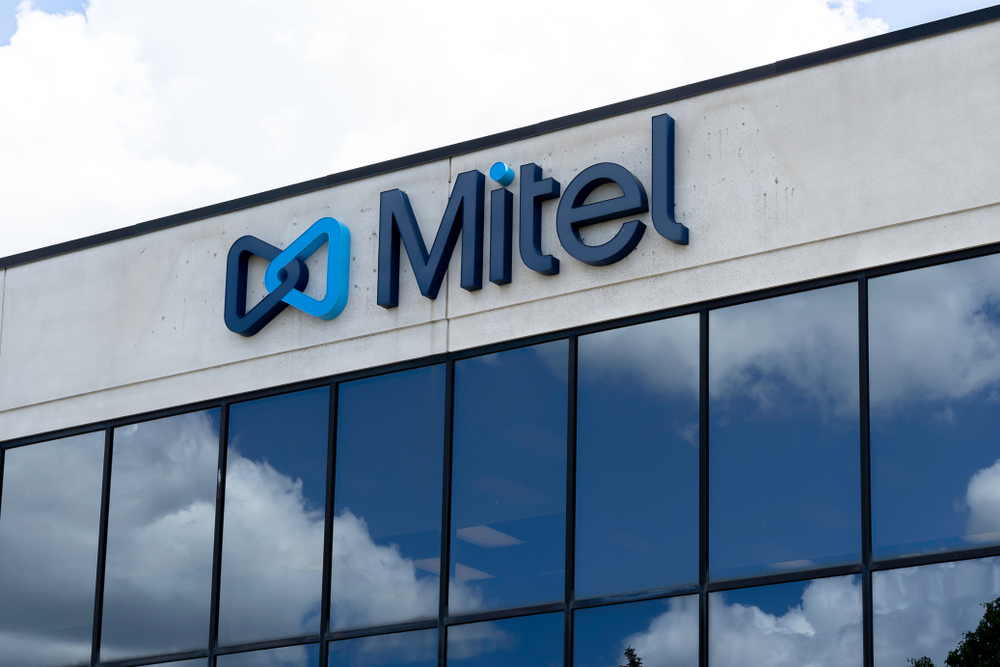Mitel or Ringcentral? As businesses become more and more global, it’s important to expand your communication options to keep up with the times. Many companies now find themselves doing business over the Internet. A virtual office is being utilized by many small businesses as well as large construction firms. Email may be a good form of communication, but there are many other tools that can be used in its place. Some of these tools include video conferencing and VoIP (Voice-over Internet Protocol) phone service.A VoIP phone system is another opportunity for constant communication at all hours of the day. One can build client relationships or quickly see who does not answer emails or return them in a timely manner by using a VoIP system.
Should you go for Mitel or Ringcentral VoIP software? There are many things to consider when choosing a VoIP provider. Alternative options, such as Vonage and Nextiva have also become popular but they aren’t perfect. In this comparison article we’ll help you choose between these two VoIP providers by looking at the most important factors and how they relate to your needs.
Features
Mitel & RingCentral do have some key differences, mainly in the features offered and their pricing.
Mitel offers a lot of features that are not available with RingCentral, like:
- Unified Communications and Collaboration
- Contact centers
- Team messaging
RingCentral does offer great web conferencing capabilities (including screen sharing, whiteboard and annotation) that Mitel is missing.
Mitel’s pricing is based on the number of users, while RingCentral’s pricing is based on the number of minutes consumed by your company. If you’re looking for a reliable, cloud-based business phone system or planning to scale your company, Mitel can be a great option. If you’re looking for an affordable solution with basic features, RingCentral may be a better choice for you.
Ease of use
For businesses, Mitel and RingCentral are two of the biggest names in cloud-based VoIP. Choosing the right one for your business can make a huge difference when it comes to communication.
Mitel

Mitel is designed for larger organizations that need advanced features and control over their communications. The company offers many of its services as add-ons, so you only pay for what you need. If you want basic phone service, Its Essential package includes nothing more than voice services, while its Premium package includes video conferencing and unified communications.
RingCentral is better suited to smaller organizations because it offers fewer advanced features than its competitor. It does offer integrations with third-party programs, such as Dropbox and G Suite by Google Cloud, which makes it easier to connect RingCentral with the other software tools your business uses.
Pricing
Mitel Pricing
Mitel MiCloud Business offers four pricing plans, ranging from $29.99 to $39.99 per user per month.
The Business plan has a minimum purchase of five users while the Connect plan has a minimum purchase of 50 users. The lowest-priced Business plan includes unlimited calling in the US and Canada, unlimited voicemail storage, and collaboration tools like web conferencing for up to 50 participants, Outlook integration, and instant messaging and presence. The Connect plan features similar features with a lower price tag, but it charges extra for international calls and doesn’t support Outlook integration or web conferencing with more than three participants.
You can also opt for on-premise phone systems for an additional fee of $1,000 to $2,000 for installation services plus $25 to $45 per user per month for maintenance and support services.
RingCentral Pricing RingCentral offers four pricing plans that range from $19.99 to $34.99 per user per month with a minimum purchase of 10 licenses. The lowest-priced plan includes unlimited calling in the US and Canada plus basic call management features.
RingCentral is a better fit for small- to medium-sized businesses.
Mitel is a great VoIP solution for the budget conscious and small business owners who want to keep costs under control. The platform’s intuitive interface and numerous features make it easy to connect teams, share information, and manage your phone system. However, Mitel doesn’t have the level of functionality or flexibility that would encourage larger companies or enterprises to adopt their services.
RingCentral’s pricing can be hard to beat. It’s also perfect for small and medium-sized businesses that need more advanced features than Mitel provides. RingCentral allows you to deploy cloud, hybrid or on-premise solutions that are scalable and customizable so you can grow with your technology requirements.
Hosted and hybrid offerings from RingCentral make it a good fit for larger enterprises.
RingCentral’s hosted solution is geared toward larger businesses, while its hybrid offering is designed to meet the needs of smaller businesses. The hosted solution uses a more robust infrastructure, which provides greater reliability and scalability. The hybrid system’s simpler architecture makes it more cost-effective and easier to use.
When comparing RingCentral vs Mitel, not only does RingCentral offer more features, but these features are also more robust.
RingCentral’s advanced features include:
- Customizable call routing and answer rules
- Flexible extensions
- Automatic call recording
- Integrated business SMS and faxing
- CRM integration (Salesforce, Zendesk)
Virtual receptionist that greets callers by name and routes calls to the appropriate agent based on their interaction with the caller.
Mitel’s products are based on a foundation of opensource software, while RingCentral relies on proprietary software.
Mitel and RingCentral are two of the most popular business VoIP providers, but they have very different offerings.
Mitel has been around since 1972, and the company has made a name for itself among businesses with its communications and collaboration software. In 2017, Mitel acquired ShoreTel, another well-known VoIP provider whose technology is now part of Mitel’s products.
RingCentral started life in 1999 as an Internet fax service but quickly added voice calling to its offerings. The company went public in 2013 and has become one of the most popular cloud-based phone systems.
Mitel and RingCentral both offer VoIP systems that can replace traditional landlines. Both companies also offer UCaaS with features like instant messaging and web conferencing. However, there are some key differences between the two providers:
Mitel’s products is based on a foundation of open-source software that has been enhanced in-house over time. RingCentral relies on proprietary software for its VoIP phones, which makes it trickier for customers to customize their systems.
Mitel’s SSL VPN protocols use a clientless solution that is easy to deploy and manage across multiple devices. RingCentral uses a standard VPN protocol that requires users to download an app.
Choose VoIP services that improve the customer experience.
VoIP is a technology that supports phone calls over the internet. It provides many advantages to business communications, including cost savings on long-distance calls, call routing to employees’ cell phones and home offices, voicemail and fax integration, and more. Companies can also choose VoIP services that improve the customer experience by providing features like call queuing, virtual receptionists, and automatic call distribution
Mitel, RingCentral, and 8×8 all offer cloud-based VoIP solutions for small businesses. Mitel MiCloud Business is an end-to-end cloud communications suite with a strong focus on mobile and remote workers. RingCentral Office is an integrated communications solution that includes video conferencing along with standard PBX features. 8×8 Virtual Office Pro includes PBX functionality as well as video conferencing functionality. Learn how these three providers stack up in different areas of their business phone systems offerings so you can make the best decision for your company.
Mitel is less expensive than RingCentral, but it’s not for everyone.
Mitel vs RingCentral is an ongoing battle. Both companies offer cloud-based business phone systems, and both of them work quite well, so the question becomes: which one is right for you?
It depends on your company’s needs. If you’re a small business looking for a solid cloud phone system that won’t break the bank, Mitel is probably the better bet. But if you want a more robust platform with more features and customization options, RingCentral is your best choice.
Mitel vs RingCentral pricing
The first thing to consider in any software purchase or upgrade is cost. Fortunately, there’s not much difference between Mitel and RingCentral in this respect. In fact, Mitel’s software-only cloud phone system starts out at $24.99 per user per month, while the basic RingCentral plan comes in at $29.99 per user per month — only a $5 difference.
Mitel vs RingCentral features
RingCentral offers 700+ calling minutes as well as collaboration tools like HD video meetings, online faxing and online storage, while Mitel provides unlimited calling to North America and some additional features like voicemail transcription and call routing rules.
Both offer customer relationship management (CRM) integration, as well as customizable dashboards, reporting tools, and application programming interfaces (APIs).
RingCentral and Mitel both offer robust feature sets that include everything from basic phone services to contact center capabilities. Both provide tools for small businesses and large enterprises, and their pricing is competitive as well.
The two companies also share a number of similarities that make it difficult to choose a clear winner in this comparison. They both offer similar features, including HD audio, video conferencing, mobile apps, and integration with third-party business applications like Salesforce’s CRM software. Both offer customer relationship management (CRM) integration, as well as customizable dashboards, reporting tools, and application programming interfaces (APIs).
Both vendors have strong security credentials. Mitel offers encryption of calls at rest and in transit, as well as single sign-on support for Active Directory users. RingCentral offers secure voice over internet protocol (VoIP) calling via encrypted sessions, built-in firewalls and intrusion detection systems.
It’s easy to choose between Mitel and RingCentral VoIP software if you know what you’re looking for.
Mitel and RingCentral are two of the top VoIP providers. Both companies offer a range of business communications solutions, including VoIP software and cloud-based phone systems. Both companies have been in business for several decades, but Mitel has significantly more experience in the industry.
Choosing between Mitel and RingCentral VoIP software can be difficult if you’re unfamiliar with your options. Both companies provide comprehensive solutions that may be suitable for your organization. Which is right for you depends on the size of your business and its specific needs.
Mitel is best suited to large organizations because it offers an on-premises deployment option that allows businesses to maintain their own hardware. This requires a significant initial investment, as well as ongoing maintenance costs, but it provides greater flexibility, security and control over the system. This option is not available from all VoIP providers, including RingCentral.
Mitel also offers a cloud-based deployment model for small to midsize businesses that do not want to manage their own infrastructure. This option eliminates many of the upfront costs associated with on-premises deployments, but it still provides a high level of customization and scalability that’s suitable for growing businesses.
Takeaway
When you are choosing a VoIP software, there are a ton of different options available.
You can even filter your options based on the features they offer and the price that they charge.
However, with all these choices available, it can be difficult to know which one is best for your business.
Mitel vs Ringcentral: The basics
To help you make the right decision, we’re going to compare two of the most popular VoIP software solutions on the market: Mitel and RingCentral.
Mitel has been around since 1972. It’s a large corporation with global reach and over 1,600 employees. This company is based in Canada and has customers in over 100 countries around the world. Over 70 million people use Mitel’s solutions every day and it’s also one of the leading cloud communications providers in the world.
RingCentral was founded in 1999. Like Mitel, this company is also based in Canada but has an impressive international presence as well, with offices in 26 different countries worldwide. RingCentral is known for being a reliable provider of cloud-based business communication systems and their solutions are used by more than 350,000





